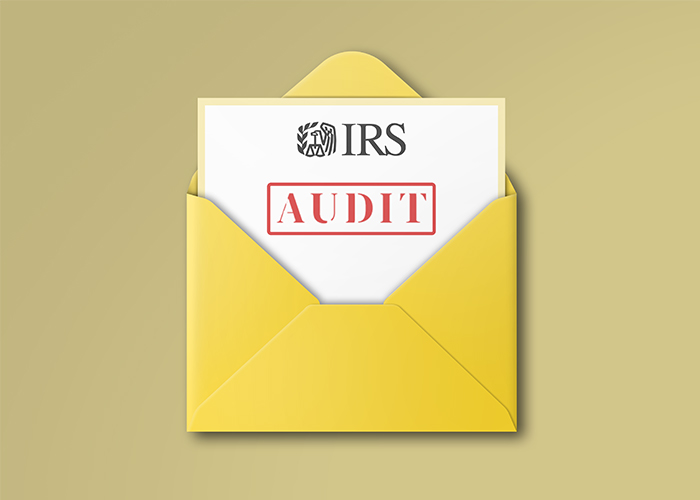5 Ways You May Be Exposing Yourself to a Tax Audit

Tax season is an incredibly stressful time of year. Most of us try our best to keep accurate records of all our finances for smoother tax filing. However, there are still several ways you may unknowingly be exposing yourself to an IRS tax audit.
Each year, the IRS audits a small percentage of taxpayers, most of whom are high-earners or made audacious claims on their returns. But the chances of getting audited are still severe enough that you should be aware of the ways in which you are potentially risking an IRS tax audit.
Claiming work-related expenses on individual filings, recording losses instead of gains, and deducting unusual expenses from taxable income are all ways you may be exposing yourself to a tax audit this year. Keep reading to learn the five ways you are unknowingly exposing yourself to a tax audit and how to avoid getting in trouble with the IRS this year.
Audit Red Flag #1: Underreporting Your Income
One of the first audit risks you should be aware of is underreporting your taxable income. It may be tempting to fib your way through your tax filing by reporting a lower taxable income amount than what you actually earned, especially by including more dependents than you have or reducing the amount of taxes owed.
However, the IRS will cross-check your tax filing with your Form W-2 to ensure you are reporting the correct taxable income. For example, if you made $70,000 in taxable income this year but only reported making $45,000, you are likely to be audited by the IRS. The IRS ensures you are filing accurate income by using a computer algorithm to check your Form W-2 against your return. If your income appears too low or too high, you may be exposing yourself to an IRS audit this tax season.
Audit Red Flag #2: Unjustifiable Business Deductions

Some taxpayers attempt to justify large tax deductions to lower their overall taxable income. For example, filing a $30,000 deduction for business travel expenses when you only made $100,000 is a huge red flag and can get you in serious trouble with the IRS.
Additionally, filing for unusual deductions can also tip off the IRS that something may not be right with your taxes. If you are self-employed and operate your business from home, you may deduct home-based business expenses, such as depreciation, utilities, rent, and repairs. While these are tax deductions you are eligible to make as a self-employed person, if you file too many or too high of deductions, you may be risking an IRS audit.
Audit Red Flag #3: Unreported Foreign Accounts
If you have any accounts in a country other than the United States, you must report those accounts on your tax filing to the IRS. These accounts can be retirement accounts, checking accounts, or investment accounts in any foreign country. If a foreign account has more than $50,000, it must be reported to the IRS to comply with federal regulations.
Failing to report a foreign account not only comes with an audit but you are also guaranteed to pay a high penalty. In recent years, the IRS has bolstered its investigation team to crack down on taxpayers with foreign accounts who have not accurately reported these accounts in past tax filings.
If you need help accounting for or filing these foreign accounts to the IRS on your next tax return, reach out to us today. Cook CPA Group can help you properly report your foreign accounts to the IRS to avoid unnecessary tax audits.
Audit Red Flag #4: Withdrawing or Depositing Large Cash Amounts

Withdrawing or depositing large sums of cash into or from your accounts may put you at risk of an IRS audit. Withdrawing large sums to purchase assets or equipment, such as a vehicle, without reporting the expense on your tax return may raise a red flag for the IRS.
Conversely, depositing more than $10,000 in cash into your bank account will trigger your bank or credit union to report that transaction to the IRS. While depositing more than this amount does not mean you’ve done something illegal, it does raise red flags for the IRS, and you are more likely to be audited.
Audit Red Flag #5: Filing Math Errors
The IRS uncovers millions of math errors on tax returns every year. While many of these mathematical errors are honest mistakes, they can still trigger a tax audit in a small percentage of cases. Luckily, if your deductions are legitimate but are slightly off due to a calculation error, you can easily explain this to the IRS in the case of an audit.
It’s critical you maintain adequate recordkeeping throughout the year for all your expenses in case of an IRS tax audit. With proper documentation, you can easily prove your deductions are legitimate and quickly resolve any questions your auditor may ask you.
If you find maintaining your records and accurately reporting your information on your taxes too overwhelming to do alone, don’t hesitate to reach out to us today. Schedule a call with us to learn more about how we can help you accurately file your tax return to avoid IRS tax audits or aid you in the case you get audited. We’re always here to help!

